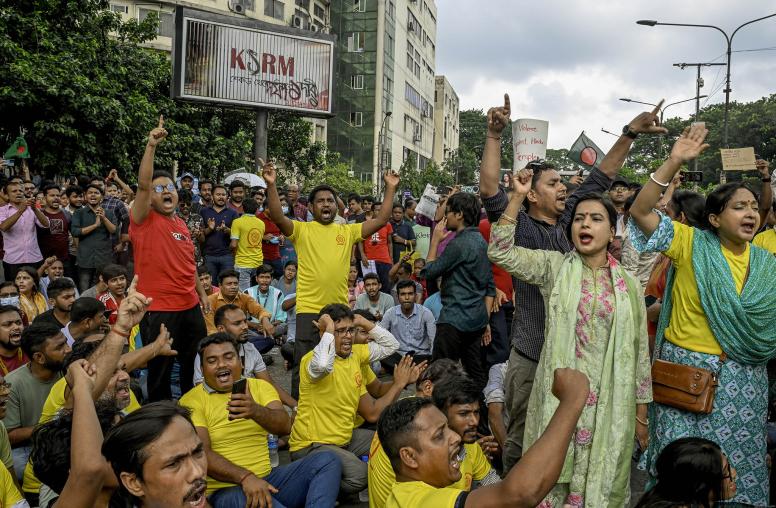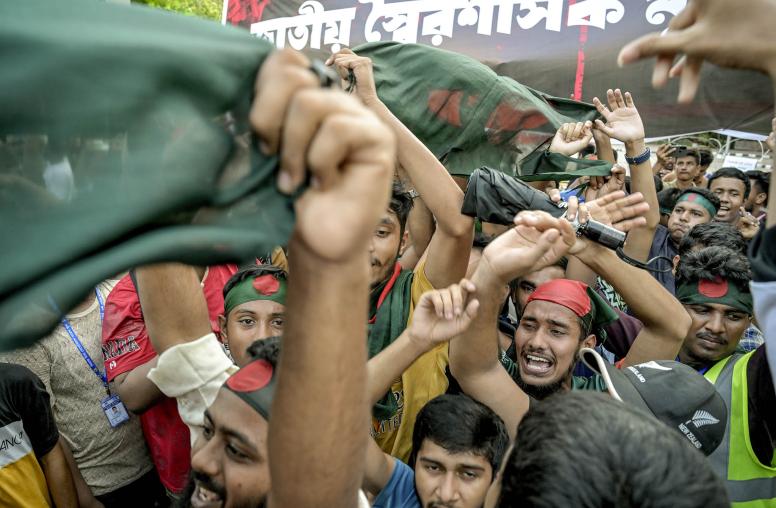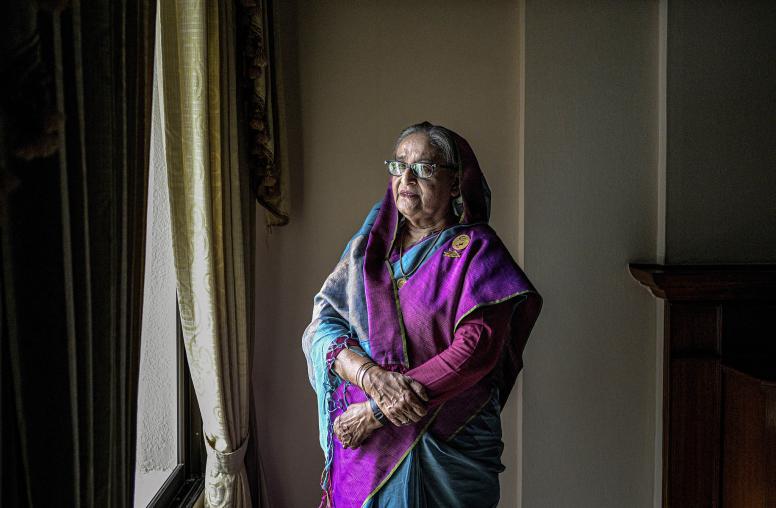Bangladesh at the Crossroads
Since the serial bombings of August 17, 2005, the attention of policymakers and analysts in Washington and beyond has focused on Bangladesh. In light of the growing public-policy import of this often overlooked but critical South Asian Muslim country, USIP launched a critical inquiry into Dhaka's policies and their domestic and international ramifications.

Summary
- Although Bangladesh is generally considered to be a secular democracy, recent years have seen a steady erosion of the important principles underlying it.
- Bangladesh’s political system is mired in conflict as the two mainstream parties battle for control of the country and its resources. With neither party able to win a majority, both have sought alliances of convenience to secure power. Neither party has addressed pervasive corruption and systemic failure to provide good governance and law and order.
- The choices Bangladeshis make—or, more critically, are permitted to make—in the coming months will have great import for the country’s future. Because politics in Bangladesh has become a zero-sum game with no meaningful political role for the opposition, the stakes are high for both the opposition Awami League (AL) and the ruling Bangladesh Nationalist Party (BNP).
- Increasingly, Islamist parties have emerged as political kingmakers with newfound legitimacy. In the 2001 elections the BNP came to power because of its alliance with key Islamist parties, even though the latter commanded few votes on their own.
- Since the late 1990s, Islamist militancy has spread throughout the country, raising questions about Bangladesh’s internal security and the consequences for South Asian regional security. The serial bombings of August 2006 shocked most observers, even though the massive attack killed only two persons.
- The upcoming January 2007 elections are in many ways a referendum on the two parties’ competing visions of Bangladesh and the role of Islam in the public and private spheres. Unfortunately, a number of irregularities in the election preparations call into question their freeness and fairness, threatening civil unrest.
- The attention and dedicated involvement of the international community is paramount to ensure free and fair elections in Bangladesh.
About the Report
Since the serial bombings of August 17, 2005, the attention of policymakers and analysts in Washington and beyond has focused on Bangladesh. In light of the growing public-policy import of this often overlooked but critical South Asian Muslim country, the United States Institute of Peace launched a sustained critical inquiry on Dhaka’s internal and external policies and their varied domestic and international ramifications. The authors carried out field work in Bangladesh for this report in June 2006 under the auspices of the Institute’s Center for Conflict Analysis and Prevention.
A.Tariq Karim is a former Bangladesh ambassador to the United States and a diplomat with more than three decades’ experience. He is now Harrison Fellow in the Department of Government and Politics at the University of Maryland.
C. Christine Fair is a senior research associate at the Institute’s Center for Conflict Analysis and Prevention. She specializes in South Asian political and military affairs and has written numerous articles and monographs on the politics and security of the region. With Ali Riaz she is overseeing a multiauthor book project on Bangladesh’s internal and external security.



